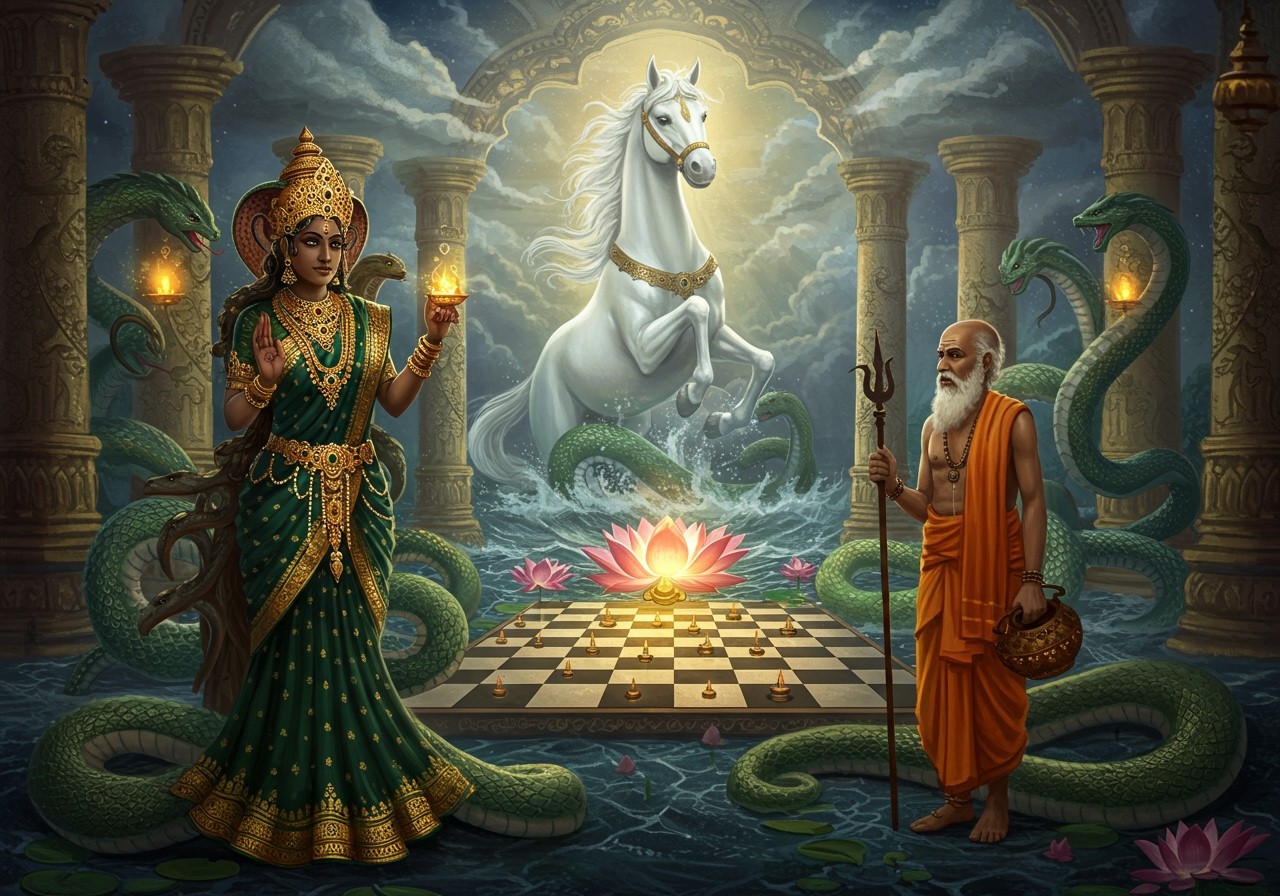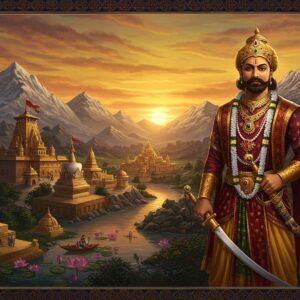
In Hindu mythology, serpent queens hold a significant place, intertwined with tales of creation, wisdom, and transformation. These powerful figures, often depicted as half-human and half-cobra, embody the mysteries of nature and the potent forces that shape our world. From the ancestral mother of snakes, Kadru, to the revered goddess Manasa Devi, their stories offer a glimpse into the rich tapestry of Indian culture and spirituality. Let’s delve deeper into their origins, significance, and enduring legacy.
Nagas and Naginis: The Serpent Beings
Nagas, the semi-divine serpent beings, play a prominent role in Hinduism, Buddhism, and Jainism. Their female counterparts, known as Naginis, share the same ability to shift between human and serpentine forms. Often associated with water and guardianship of treasures, these mystical beings are integral to many ancient tales. Some dynasties even claim descent from the union of a human and a Nagi, demonstrating their deep-rooted significance in cultural narratives. For authentic depictions of these deities, explore the exquisite collection of Nag Devta idols available at poojn.in.
Kadru: The Mother of Serpents
Kadru, revered as the “Sarpamatar” or Mother of Serpents, stands as a central figure in serpent mythology. Her story intertwines with that of the sage Kashyapa, a key progenitor in Hindu cosmology. Kadru’s rivalry with her co-wife, Vinata, is a recurring theme, often cited in the Mahabharata and other epics. This rivalry, rooted in pride and envy, serves as a powerful narrative exploring themes of ambition and its consequences. Poojn.in offers a range of puja items specifically for Nag Panchami, a festival honoring serpents, allowing you to connect with this ancient tradition.
Manasa Devi: The Benevolent Serpent Goddess
Manasa Devi, a prominent goddess of snakes, is widely worshipped for her protective powers against snakebites, as well as for fertility and prosperity. Known by various names, including Vishahari (destroyer of poison) and Padmavati, she embodies the duality of serpents – their potential for both harm and healing. Her origins are multifaceted, with some accounts linking her to sage Kashyapa, while others describe her as emerging from Lord Shiva’s essence. Honor Manasa Devi with beautifully crafted brass and copper puja items available at poojn.in.
Manasa Devi’s Family and Trials
Manasa’s complex family dynamics play a vital role in her narrative. Considered the sister of powerful Nagas like Shesha and Vasuki, she faced rejection from her father and husband, and the animosity of her stepmother, Chandi. Despite these trials, she remained compassionate towards her devotees, striving to establish her rightful place as a goddess. These intricate stories reveal her resilience and determination.
Manasa Devi’s Cultural Influences
Scholars suggest that Manasa Devi’s origins might lie in South Indian non-Vedic traditions, possibly connected to folk deities like Manchamma or even the Buddhist goddess Janguli, who shares similar associations with snakes and healing. This cross-cultural influence further enriches her mythology and widespread appeal.
Vedic Roots of Serpent Worship
The Rig Veda, an ancient Hindu scripture, mentions a “Serpent Queen,” referring to the earth itself. This reference underscores the ancient roots of serpent worship, indicating a long-standing reverence for these powerful creatures. Explore poojn.in’s blog on Hindu mythology for more insights into these ancient traditions.
Kashyapa and Kadru: A Story of Wisdom and Consequences
The tale of Kashyapa and Kadru is not just about serpents; it also explores themes of wisdom, ambition, and the far-reaching consequences of our choices. Kashyapa, a revered sage, plays a pivotal role in creation myths, while Kadru’s actions set in motion a series of events that shape the destinies of her offspring. Explore the complex dynamics between these characters in poojn.in’s exploration of Hinduism’s relationship with nature. For those seeking to deepen their understanding of these powerful deities and rituals, poojn.in offers a curated collection of spiritual resources.
The Enduring Legacy of Serpent Queens
The stories of serpent queens continue to resonate with people today, offering valuable lessons about respect for nature, the power of transformation, and the importance of cultural heritage. Thanks to online platforms, these ancient tales are readily accessible, ensuring their continued relevance in a modern world. Discover a wide selection of authentic puja items and spiritual resources at poojn.in to enrich your connection to these enduring traditions.


